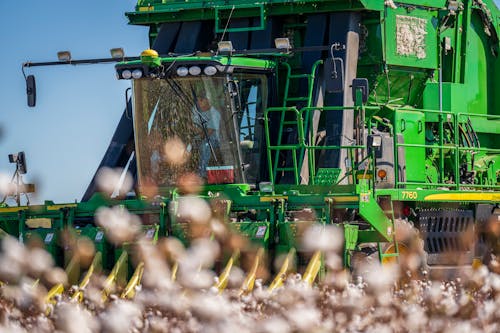
Hydroponic farming is quickly becoming a popular way to produce more food with fewer resources and environmental impacts. As hydroponic technology improves, more investors are looking to get involved in this booming sector of the agriculture industry through hydroponic stocks.
Here at EDGS Investment Strategies, we’ve gone over countless companies and stocks related to hydroponics and have come up with our top 10 picks that we highly recommend. Let’s discuss in detail!
What Is Hydroponic Farming And How Does It Work?
Hydroponic farming is a method of growing plants without soil, in an environment that uses water-soluble nutrients for nourishment. The roots of the plants are suspended in a nutrient solution, or the solution is sprayed directly onto the leaves and stems.
Plants grown using hydroponics techniques typically grow faster than those grown in traditional soil-based gardening methods, as the availability of key minerals and other essential nutrition from the soil does not limit them. In addition to providing essential nutrition to plants, hydroponic systems can be used to reduce water usage and conserve resources since only small amounts of water need to be changed on a regular basis.
Hydroponic systems also have many practical applications such as aquaponics (combining hydroponic systems and aquariums) and aeroponics (growing plants in an air-based environment). Hydroponic farming is growing in popularity as it has been proven effective for commercial farmers, hobbyists and greenhouses alike.
The Benefits Of Hydroponic Farming Over Traditional Agriculture
Hydroponic farming offers a number of advantages over traditional agriculture. One major benefit is that it requires far less water than traditional farming methods, as the plants are grown in water instead of soil. This allows farmers to grow crops using significantly less water and can help conserve resources. Additionally, hydroponic farming often results in higher yields than traditional farming methods due to the fact that crops can be grown more efficiently with better access to nutrients and oxygen.
Furthermore, since hydroponics does not require arable land or large amounts of space for growing, it is an excellent option for urban areas where land availability may be limited.
Finally, hydroponic systems are highly efficient, allowing for greater control and accuracy when cultivating plants. This makes it easier to achieve desired results and helps to reduce the overall cost of production.
Overall, hydroponic farming offers many advantages over traditional agriculture. It is a more efficient way to grow crops, with higher yields and lower water consumption than traditional methods. Additionally, it takes up less space and can be easily incorporated into urban environments where land availability may be limited. Its highly efficient systems allow for greater control and accuracy when cultivating plants, saving time and money in the process. By utilizing hydroponics, farmers can enjoy a number of benefits while minimizing their environmental impact at the same time.
The Top 10 Highly Recommended Hydroponic Farming Stocks For
- Origin Agritech Limited (SEED)
- Scotts Miracle-Gro Company (SMG)
- Advanced Nutrients (ANF)
- GrowGeneration Corp. (GRWG)
- AquaBounty Technologies Inc. (AQB)
- BALDOR ELECTRIC COMPANY (BEZ)
- The Scotts Company LLC (SCOTXF)
- AeroFarms Inc.(AFI)
- AgroFresh Solutions, Inc.(AGFS)
- Valmont Industries, Inc.(VMI).
How To Choose The Right Stock For Your Investment Portfolio
Once you’ve identified the sector or sectors in which you would like to invest, it’s time to start looking for the right stocks. There are hundreds of publicly traded companies in any given industry, so selecting the best one can be a daunting task.
Here are some tips to help you narrow down your choices:
Understand Your Risks and Investment Goals
Before you even begin researching individual stocks, take a step back and consider what type of investor you are. Are you looking for short-term gains, or do long-term buy-and-hold strategies fit more within your risk tolerance? Knowing your investment goals will help guide your stock selection process, as different types of investments have varying levels of risk.
Analyze the Fundamentals
Once you have a sense of the kind of investments that suit your risk tolerance, it’s time to start analyzing companies’ fundamentals more closely. This includes researching the company management team, its financial statements and performance, industry trends and competition. It can be helpful to look for stocks with consistent earnings growth, positive cash flow, and low debt levels.
Utilize Technical Analysis
While fundamental analysis provides an overview of a company’s performance, technical analysis allows investors to examine insider buying activity, chart patterns and other market indicators in order to predict future stock prices or identify potential opportunities for trading profits.
Monitor Performance
Once you’ve selected your stocks, staying on top of their performance is important. This includes tracking the news and any company announcements and keeping an eye on its financials and overall market conditions. Staying informed will allow you to make timely decisions about when to add, reduce or exit positions in order to maximize your returns.
The Risks Associated With Investing In Hydroponic Farming Stocks
Investing in hydroponic farming stocks can be a lucrative investment, but it has risks. These include the volatility of the market, the potential for poor management decisions, and the possibility of environmental or weather-related events impacting crop production.
Additionally, changes in government regulations could affect how companies operate and how their stock prices respond to those changes. Investors should always research and understand potential risks before investing in any company’s stock.
One risk that investors should consider when investing in hydroponic farming stocks is currency risk. Hydroponic farming takes place around the world, oftentimes involving multiple countries’ currencies within the same operation. For instance, if an investor owns shares of a company operating in Mexico and the value of the Mexican peso goes down, they may lose money on their investments.
Conclusion
If you’re looking for ways to invest in the future of agriculture, hydroponic farming stocks are a great option. The companies on this list are some of the top-recommended picks in the industry and have a solid track record of success.
Hydroponics is one of the most promising technologies in this area and is quickly gaining traction. These companies are well-positioned to capitalize on this trend and provide investors with attractive returns.
